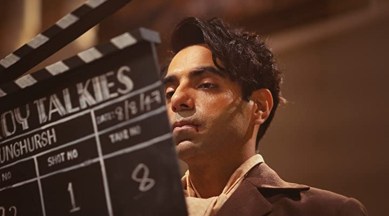Click here to follow Screen Digital on YouTube and stay updated with the latest from the world of cinema.

There was a time in 1952 when All India Radio (AIR) imposed a ban on film music and it was in these years that Radio Ceylon and their popular show Binaca Geetmala, hosted by Ameen Sayani, became the saviour for Hindi film music lovers. But why did AIR ban Hindi film music in the first place?
BV Keskar, who was then the Minister of Information and Broadcasting, believed that film music was “westernized” and Indians needed a dose of homegrown classical music. He was quoted by The Hindu saying, “We must make (ourselves) familiar with our traditional music.” He believed that the appreciation of classical music had “fallen” and was “on the point of extinction,” and the popularity of film music was ruining the younger generation as they were being influenced by non-Indian elements. He initially suggested that all songs aired on AIR be screened by the organisation, and said that if a song is played, it would not carry the name of the film as AIR would not advertise for the movies.
Soon, the film industry producers rescinded the music rights given to AIR and within months, there was no film music to be heard on the radio. However, Radio Ceylon, based out of Sri Lanka, which had started its Hindi music station a few years ago, became active during this period as they saw a big opportunity with their Indian listeners. Binaca Geetmala gained fame during this time as Ameen Sayani presented the most popular songs of the time with some trivia.
Sayani told Caravan in 2012, “Radio Ceylon was at the right place and the right time” and added “They (Radio Ceylon staff) knew that All India Radio had banned film music. So, the decision to start a Hindi service then must have been deliberate.”
Keskar’s decision wasn’t welcomed the masses and with the popularity of Radio Ceylon, AIR finally decided to launch Vividh Bharti in 1957 which would play Hindi film songs. In fact, they declared that out of the five hours that the radio station would play music, almost four hours would be dedicated to Hindi film music.
Vikramaditya Motwane’s Prime Video series Jubilee recounts this incident in a fictional manner. The show suggests that the ban of Hindi film music was the direct result of the ongoing Cold War between USA and USSR. The show suggests that USSR was interested in using Indian film stars for their propaganda, which was supported by a section of the Indian government and since the Indian filmmakers did not comply, their music was banned by AIR. Filmmakers, in retaliation, took their business to Radio Ceylon which was backed by USA. The right hand man of the studio head and an actor Madan Kumar (played by Aparshakti Khurana) is seen sending the records to Radio Ceylon using clandestine means. However, it is not clear that such cat-and-mouse games were used while sending the records in actual life, with reports suggesting that they were sent on Air India flights. The ban ended with the introduction of Vividh Bharti, which played Hindi film music.
Click here to follow Screen Digital on YouTube and stay updated with the latest from the world of cinema.